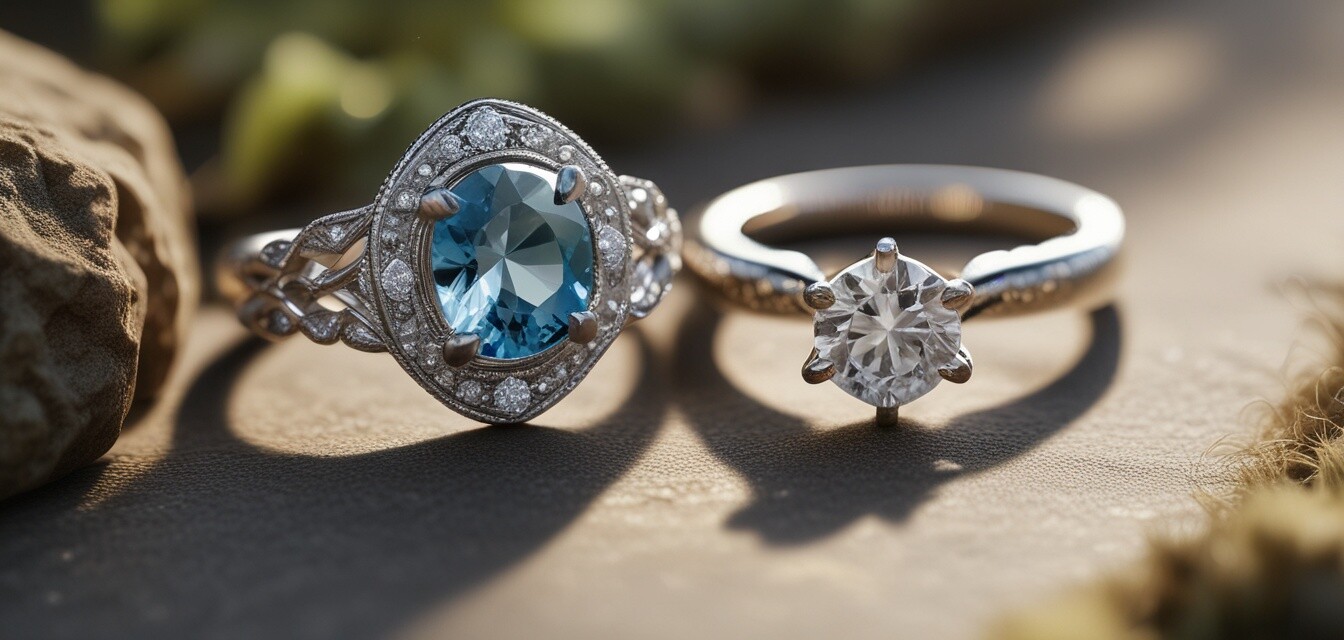
Choosing the perfect engagement ring sustainably
Key Takeaways
- Consider the origin of the gemstones.
- Opt for conflict-free diamonds or alternative stones.
- Evaluate different ring settings for sustainability.
- Research brands committed to ethical practices.
- Think about long-term wearability and design timelessness.
Finding the perfect engagement ring is a significant milestone in many people’s lives. However, making a sustainable choice can often be overwhelming. This guide aims to simplify the process, offering insights into how to choose an engagement ring that reflects your values, particularly regarding sustainability and ethical practices.
Understanding sustainable engagement rings
Sustainable engagement rings go beyond just being visually appealing. They are created with consideration for the environment and ethical sourcing practices. Here are key aspects to consider:
- Ethical sourcing: This refers to obtaining materials in a way that respects the environment and communities involved in the mining process.
- Recycled materials: Using previously mined stones or recycled metals helps reduce the demand for new mining operations.
- Carbon footprint: Consider rings made from sustainable materials that have a lower environmental impact.
Key factors to consider when choosing an engagement ring
1. Choosing the right gemstone
When selecting a gemstone for your engagement ring, consider the ethical implications. Many gemstones can be sourced sustainably:
| Gemstone | Sustainability Aspect |
|---|---|
| Moissanite | Lab-created, eco-friendly alternative to diamonds. |
| Lab-grown diamonds | Created in a lab with minimal environmental impact. |
| Recycled gemstones | Previously owned stones that are reused. |
| Sapphires | Can be ethically mined and sourced largely in sustainable ways. |
| Emeralds | Look for Fair Trade certified sources for ethical practices. |
2. Examining the ring settings
The setting of the ring is just as important as the gemstone itself. Here are some sustainable options:
- Recycled gold or platinum: Many jewelers offer settings made from recycled metals, reducing the need for new mining.
- Wooden settings: Unique and eco-friendly, wooden settings are perfect for nature lovers.
- Fair Trade certified metals: Ensure the metals used are procured in an ethical manner.
3. Researching responsible brands
Not all jewelry brands are created equal. It’s important to do your due diligence:
- Look for brands that provide transparency about their sourcing practices.
- Seek companies that invest in the communities where they operate.
- Consider brands that engage in environmental initiatives.
Budgeting for a sustainable engagement ring
Setting a budget is crucial when buying an engagement ring. Here are a few things to keep in mind:
- Understand that sustainable options might range in price, but they are often more valuable in terms of ethics.
- Consider investing in quality over quantity, as a well-crafted ring can last a lifetime.
- Don’t hesitate to discuss your budget with jewelers who specialize in ethical rings.
Taking the next steps
Once you've done your research, it’s time to begin your search. Here’s how you can start:
- Visit StoneEarrings.com to explore a range of sustainable jewelry options.
- Consider checking out personalized rings to ensure the unique touch is included in your design.
- Engage with local jewelers who specialize in ethical practices.
Final thoughts
Choosing an engagement ring sustainably is not only a responsible choice but also a meaningful one. By considering ethical sourcing, researching responsible brands, and opting for sustainable materials, you can select a ring that embodies not only your love but also your commitment to preserving our planet.
Tips for selecting the perfect engagement ring
- Start early to give yourself time to evaluate options without pressure.
- Consider the recipient's personal style and preferences.
- Consult with jewelry experts who specialize in sustainable solutions.
- Don’t rush into a purchase; take your time to ensure it meets your values.
Pros
- Ethically sourced and sustainable options.
- Unique styles and designs promote individuality.
- Less environmental impact compared to traditional rings.
Cons
- May require more research to find the right jeweler.
- Potentially higher costs compared to mass-produced alternatives.